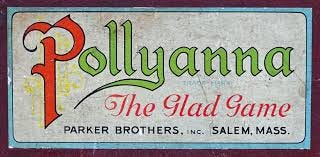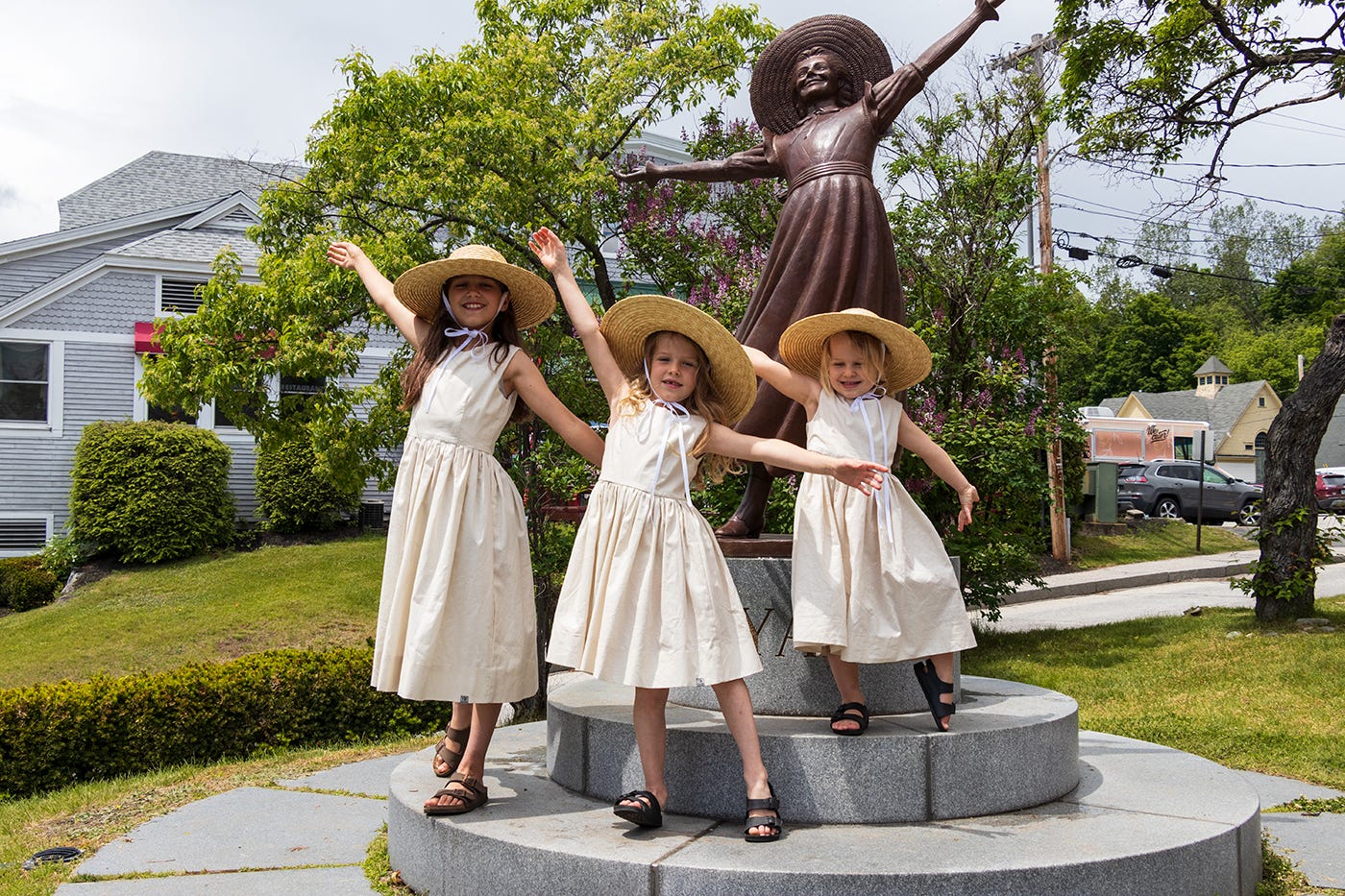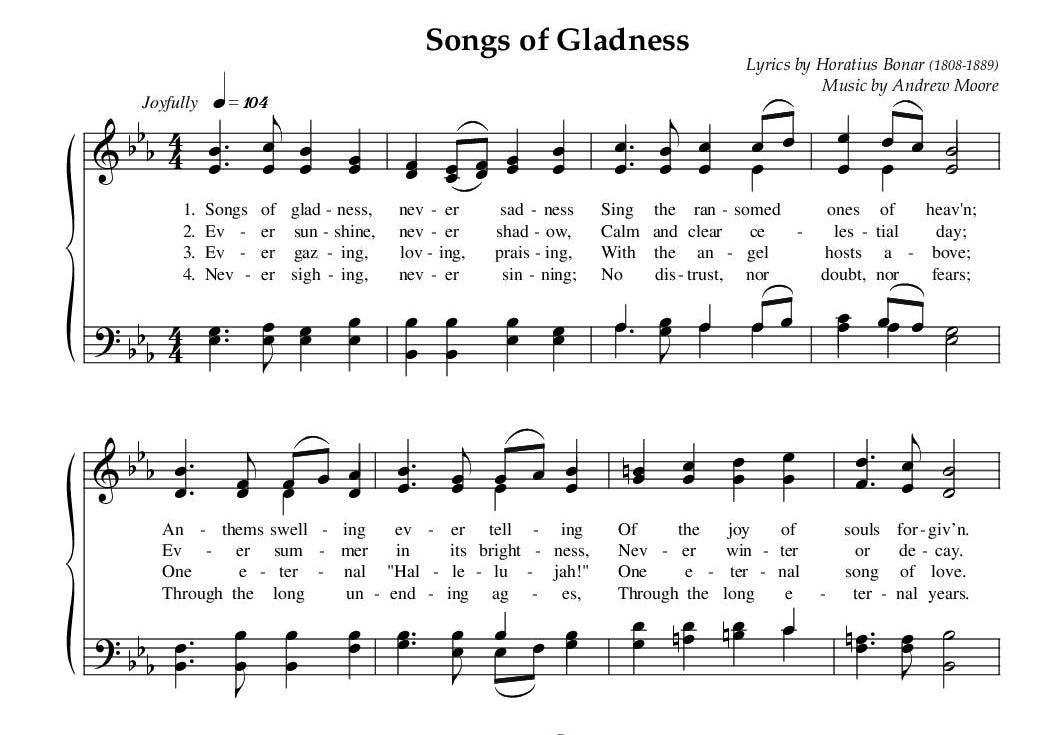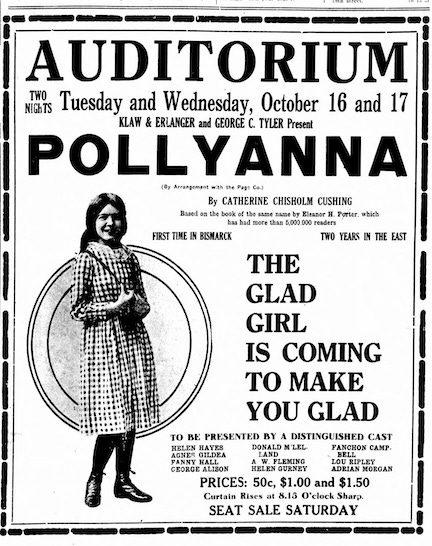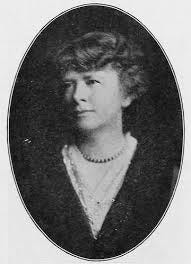Pollyanna, published in 1914 and Eleanor Hodgman Porter’s seventh book, was an enormous sensation and remains a popular classic. In our series, “What Makes Pollyanna Special?” we speculate on why this book continues to delight.
In Part One “What Eleanor Porter left out?” we compared Pollyanna to Eleanor’s other novels, most of which reflect the Social Gospel and propose social reforms. We suggest that Pollyanna is grounded in a Gospel of “personal sins” rather than an activist Gospel of “societal sins.” Eleanor Porter, a devout, progressive Congregationalist, set aside her call to fix society and invites us to play the Glad Game.
The Game they play to fix themselves
Pollyanna learns the Glad Game from from her father, Reverend Whittier, when a missionary barrel does not deliver an expected doll for the little girl but instead yields children’s crutches. Pollyanna explains to Nancy how her father taught her to be glad about getting crutches:
“Goosey Why, just be glad because you don't--NEED--'EM ” exulted Pollyanna, triumphantly.
She further explains the game in Chapter XXII when she consoles the despairing Reverend Ford. She tells him that her father also despaired of church work but “… [H]e wouldn't STAY a minister a minute if 'twasn't for the rejoicing texts.”
“Of course the Bible didn't name 'em that. But it's all those that begin 'Be glad in the Lord,' or 'Rejoice greatly,' or 'Shout for joy,' and all that, you know--such a lot of 'em. Once, when father felt specially bad, he counted 'em. There were eight hundred of 'em. ‘
“He said if God took the trouble to tell us eight hundred times to be glad and rejoice, He must want us to do it-- SOME. ”
The Reverend Ford retreats to his study and puts aside the scolding verses (“…woe unto you…”) to craft a new sermon that illustrates Pollyanna’s positive message. Instead of threatening and scolding his congregation, he praises and encourages them. Weeks pass, and he reports that “he hadn't stopped being glad over those eight hundred rejoicing texts… The whole town is playing the game, and the whole town is wonderfully happier--and all because of one little girl who taught the people a new game, and how to play it.”
Happiness happens. Gladness must be sought.
“I have never believed that we ought to deny discomfort and pain and evil. I have merely thought that it is far better to ‘greet the unknown with a cheer.’”— Eleanor H. Porter
The words “happy” and “happier” occur only 18 times in Pollyanna. The word “glad”appears 285 times. “Glad” is a feeling of well-being (joy, exultation, happiness, etc.) inspired by feeling gratitude. The Glad Game shows that we find gladness amid disappointment and annoyances when we confidently seek something to be thankful for .
Pollyanna is notorious for her optimism (a word absent from the novel). Critics have always scorned the orphan, even accusing her of “toxic positivity.” But Pollyanna’s out-sized optimism is essential fuel for the Glad Game. Deaf to sarcasm, immune to irony, blind to affronts, Pollyanna finds unexpected things to be glad about. The game banishes despair and restores hope. Folks who play the game teem with gratitude — but to whom?
Eleanor Porter mentions God several times in Pollyanna but does not depict anybody in the act of thanking God. She never mentions Jesus Christ or Salvation, although she cites Bible verses from the New Testament. She does mention Christianity once when describing Reverend Ford’s distress. The Glad Game is not a catechism. It inspires optimistic hope, but not faithful hope. “Faithful” is different from “Optimistic.”
Optimism is based on proof. Faith does not require proof. The Glad Game gathers the evidence that we need to feel better, and promotes an “attitude of gratitude,” but Faith is different. It asks that hope be vested in a belief. Faith asks for prayer not the glad game.
Pollyanna offers only gratitude and optimism, but she has somehow cheered four generations of readers and left them all feeling Glad.
What makes Pollyanna special? (III)
Stand by for the next Beldingville Beacon
Although Eleanor Porter stops short of evangelizing her faith, contemporary ecclesiastics welcomed Pollyanna. We shall see a minister in Salem, Massachusetts invite Eleanor to deliver a sermon. Likewise, the Glad Game has the attention of modern academia. One professor sees the game as a tool of “the patriarchy” that (somehow?) keeps women subjected to the dominance of males. (!)
“My stars and stockings,” gasped Nancy, hurrying on again.
“I'd like ter know what yer aunt would say ter that…”
Illustrations: Library of Congress, Google images, Littleton Area Chamber of Commerce.
Copyright © Jim McIntosh 2024





